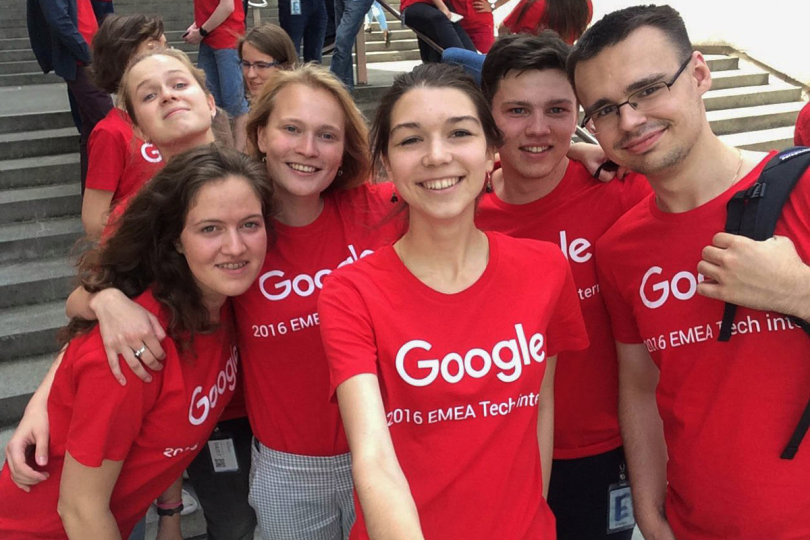During the summer month, our offices are buzzing with young, enthusiastic people from all over the world - a sign that it's intern season.
Internships are the closest that academic professions have to the apprenticeship model still common in Germanic countries. Students get to experience professional life for a few months during semester breaks and learn some practical skills that might improve their perspectives of employment, while employers get to build relationships with some of the most promising students before they officially enter the job market.
Some employers complain that students don't leave university with the exact skillset that they are currently looking for in their entry level applicants. However the most important skills a good university should teach are the ability to reason, to learn and to understand the underlying scientific foundations of a given field. Many of the practical skills needed to excel in a certain profession are best acquired on the job.
Some traditional academic professions like medicine or law have explicit and formal post-graduate training requirements before somebody is allowed to independently practice. For other professions such post-graduate on the job training may be voluntary and informal but no less important for the solid mastery of a given given profession.
The internship programs offered by most top tier tech companies are an important step in that direction. Most Internship programs offer the ability to try out a particular field, industry or employer for a limited time (typically 3-6 months), working under the close guidance and mentorship of a seasoned professional.
For students, internships are a great way to figure out what they want to do after they graduate, get a foot in the door with a potential employer or live and work for a few month in an different or exotic place, all expenses payed.
And in the end, internships are a great way to smooth the transition from university to professional life as many surveys show internships as the leading source for landing the first job after graduation.
I started my career 25 years ago with an internship opportunity at AT&T Bell Labs, the legendary research lab where many important invention had been made and many of my most admired professional celebrities and role models had worked or where still working. Being overly pragmatic and down to earth, I would never had considered applying for jobs overseas or in such an illustrious institution - but for a 6 month internship certainly why not! The 6 month internship led to a full-time job at Bell Labs over a decade of working in the US.
Internships are the closest that academic professions have to the apprenticeship model still common in Germanic countries. Students get to experience professional life for a few months during semester breaks and learn some practical skills that might improve their perspectives of employment, while employers get to build relationships with some of the most promising students before they officially enter the job market.
Some employers complain that students don't leave university with the exact skillset that they are currently looking for in their entry level applicants. However the most important skills a good university should teach are the ability to reason, to learn and to understand the underlying scientific foundations of a given field. Many of the practical skills needed to excel in a certain profession are best acquired on the job.
Some traditional academic professions like medicine or law have explicit and formal post-graduate training requirements before somebody is allowed to independently practice. For other professions such post-graduate on the job training may be voluntary and informal but no less important for the solid mastery of a given given profession.
The internship programs offered by most top tier tech companies are an important step in that direction. Most Internship programs offer the ability to try out a particular field, industry or employer for a limited time (typically 3-6 months), working under the close guidance and mentorship of a seasoned professional.
For students, internships are a great way to figure out what they want to do after they graduate, get a foot in the door with a potential employer or live and work for a few month in an different or exotic place, all expenses payed.
And in the end, internships are a great way to smooth the transition from university to professional life as many surveys show internships as the leading source for landing the first job after graduation.
I started my career 25 years ago with an internship opportunity at AT&T Bell Labs, the legendary research lab where many important invention had been made and many of my most admired professional celebrities and role models had worked or where still working. Being overly pragmatic and down to earth, I would never had considered applying for jobs overseas or in such an illustrious institution - but for a 6 month internship certainly why not! The 6 month internship led to a full-time job at Bell Labs over a decade of working in the US.
